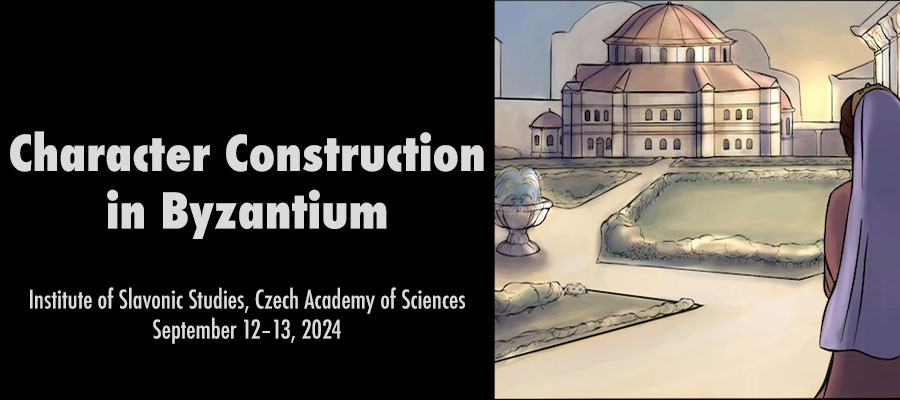Character Construction in Byzantium, Institute of Slavonic Studies, Czech Academy of Sciences, September 12–13, 2024
The presentation of characters emerges as a multifaceted complex of literary devices, reflections of gender, power dynamics, and social norms of the period during which a text was produced. When delving into the characters that populate Byzantine texts, we notice a predominance of elite male characters who are overrepresented at the expense of other individuals. As early as in 1998, Elizabeth A. Clark noted that the voices of "real women" remain elusive in premodern literary works. This observation can be extended to other social groups, including non-elite and non-binary individuals, such as peasants, servants, eunuchs, disabled persons, and eventually even the members of the Byzantine elite. Subsequently, if we cannot hear the real people, can the characters supply any insights into the Byzantine society and culture? Whose voices do actually speak? These questions and considerations lie at the core of our research project, which focuses on female characters in the late Byzantine literature.
To foster a more focused scholarly debate, we invite researchers to present papers addressing various facets of character construction in Byzantine texts. We encourage a cross-generic approach, examining both the "factual" characters of historiographic genres and the "fictional" characters of hagiography and verse narratives, and also aim at scrutinizing both major and minor characters in narrative literature as well as narrative sections of non-narrative genres. We wish to explore the representation of gender and of marginalized characters but also invite papers that focus on the relations between individuals and the environment.
We welcome presentations exploring (but not restricted to) the following topics:
- The construction of major and minor characters in Byzantine literature
- Techniques and devices producing gender in texts
- Processes of categorization and individuation
- The connection of character construction with other narrative categories such as space and time
- The relation between characters and audiences
- The intersectionalities of gender and class in character representation
Organizers: Markéta Kulhánková, Florin Leonte, Petra Melichar
